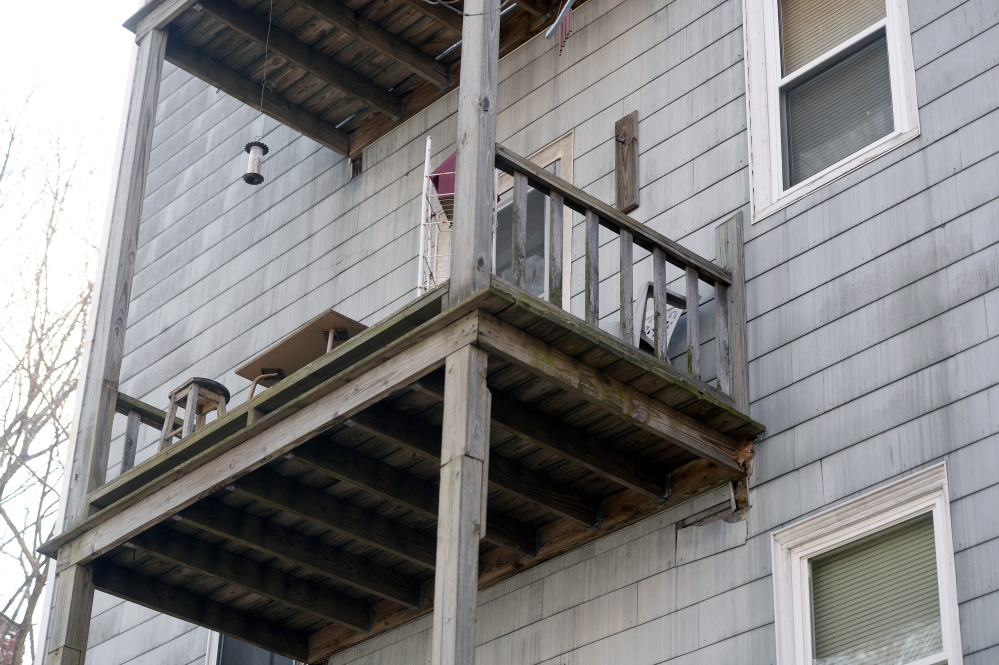As elected officials in Portland work on next year’s municipal budget, there will likely be a lot of discussion about whether Portland can afford $600,000 to create a housing safety office. But the death last week of a renter in the city should be a stark reminder that there are also high costs for not taking action.
Donald Stain died in a 20-foot fall April 23; police believe he fell when he leaned on the railing of the porch of his second-floor apartment and it gave way. The next day, a city inspection of the building at 563 Cumberland Ave. revealed that all three exterior porches there were unsafe. The owner of the 11-unit building has been ordered to either repair them or remove them.
Stain died at a time when Portland is already paying a lot of attention to the state of its rental housing, spurred by a fire that killed six people at a Noyes Street duplex Nov. 1. The blaze called attention to the fact that two-unit buildings like the Noyes Street property don’t get annual safety inspections. They’re checked out only in response to complaints.
Now, the deadly fall has demonstrated the failings of even regular inspections.
In 2012, the Cumberland Avenue building passed a routine fire inspection (its last municipal inspection). And in January, both the building and Stain’s apartment cleared the yearly federal inspection needed to qualify for a housing voucher.
Neither of the inspections, though, included the porch. It wasn’t required, because it wasn’t a fire escape. The city building code covers porches. But city fire codes inspectors aren’t versed in these rules. And it’s city fire codes inspectors who are doing the routine housing safety inspections – not city building codes inspectors.
The death of Donald Stain adds to the mountain of evidence in favor of a housing inspections division, with cross-trained inspectors responsible for conducting both building and fire inspections. The city can’t go on with the housing safety system the way that it is now – it’s guaranteed to make sure that some things are checked twice and others aren’t checked at all.
The proposed new city office is designed to support itself with charges assessed on local landlords. But if these fees fall short, other cities have ideas on how to make up the gap, such as leveraging the backing of nonprofit agencies and neighborhood associations. Until and unless the city revamps its confusing, fragmented housing inspection and enforcement system, Portland’s renters will face needless risks to their health and safety.
Send questions/comments to the editors.



Comments are no longer available on this story